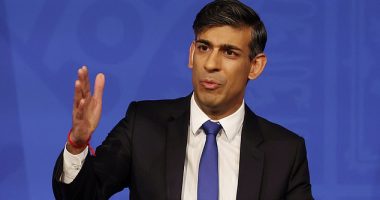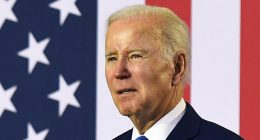UNEMPLOYMENT benefits that were to officially end on Labor Day may end EARLIER in some states due to administrative rules.
On September 6, as many as 7.5 million unemployed citizens who lost their jobs as a result of the Covid-19 pandemic will stop receiving the temporary bonus unemployment insurance benefits.
Every state pays benefits that are in accordance with a set schedule that ends on a Saturday or a Sunday.
However, the American Rescue Plan has only offered benefits until September 6 which is a Monday.
That means that the last week of aid will be on September 4 or 5 depending on how the state operates its system.
The “benefits cliff” will impact more than 11 million Americans who will either lose all of their benefits or else see a smaller check each week, the Century Foundation estimates.
In California, the Employment Development Department states that no payment would be made after September 4 – “even if you have a balance left on your claim at that time.”
Labor Day and the days before is expected to be a nightmare for the millions of Americans who will lose their $300 check.
Altogether, three temporary programs, Pandemic Unemployment Assistance (PUA), Federal Pandemic Unemployment Compensation (FPUC), and Pandemic Extended Unemployment Compensation (PEUC) have dispersed about $800billion in aid to needy families throughout the pandemic, according to The Century Foundation.
PROGRAMS ON CHOPPING BLOCK
Each program was aimed to tend to those who experienced various inequities.
- The PUA gave certain workers extra support who wouldn’t normally qualify for unemployment, for instance, freelancers, self-employed and independent contractors.
- The FPUC helped supplement the unemployment benefits amount offered by states amounting to $334 per week on average, according to Brookings.
- The PEUC aided those who have been looking for a job for the long term.
The consensus among some governors frowned on the benefits as being overly generous and didn’t help employers trying to fill vacancies.
Some successful lawsuits in Indiana, Maryland, Arkansas and Oklahoma, have ordered them to reintroduce the money.
JOBS AND COVID ON RISE
Last week, the number of Americans filing new claims for unemployment benefits dropped to a 17-month low, Reuters reported.
The promising data, of claims falling below the 350,000 level suggests the economy is improving and job growth is on the rise.
“We can infer that hiring remains strong in August, pointing to a healthy jobs report for this month,” corporate economist at Navy Federal Credit Union Robert Frick said.
But given that the daily average of Covid-19 infections has leaped to 140,893, the labor market’s recovery could experience some turbulence.
There are an estimated 9.5 million Americans who are unemployed, but the Economic Policy Institute determined that there are another 10.4 million workers who continue to be financially hurt by the unemployment downturn as of June.
This includes 4.4 million people who have stopped looking for work.
Most of them are middle-aged or older.
In July, analysis by the American Association of Retired Persons (AARP) analyzed June’s unemployment numbers.
They found that 36 per cent of long-term unemployed were between the ages of 16 and compared to 55 per cent of workers age 55 and over.
A year ago, Democratic Sen. Ron Wyden of Oregon and the top Democrat on the Senate Finance Committee said that Americans can’t afford to have the federal faucet turned off.
“While the consumer economy is shuttered, Congress has a responsibility to make sure that Americans can bounce back in a matter of weeks or months.
He continued: “Otherwise, millions will struggle and be slow to recover from the economic crisis, and many might not make it if the Senate doesn’t move to help them now, now, now.”
BIDEN APPROVES SEPT. 6 ENDING
President Joe Biden has previously said it “would make sense” for the extra federal aid to expire on Labor Day.
But the sentiment hadn’t factored in the now dominant Delta variant which has become the top Covid-19 strain in the US.
Earlier this month, Jen Psaki, White House press secretary, said “there has not yet been any decision” about whether the extra benefits will expire or be extended.
This post first appeared on thesun.co.uk









